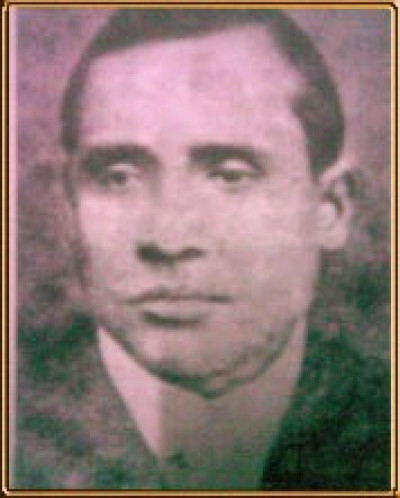Life & Legacy
Chandra Kumar Agarwala was titled as Pratimar Khonikor in Assamese literature. Agarwala was the first editor and financer of the Jonaki magazine and a founder member of Asamiya Bhasa Unnati Sadhini Sabha, a literary organization of Assam with his intimate friends Lakshminath Bezbarua and Hemchandra Goswami.[3][4] Agarwala, along with his friend Lakshminath and Hemchandra, are known as "Trimurti of Assamese literature" for their remarkable contribution to the very beginning of modern Assamese literature.
Early Life and Education
Chandra Kumar Agarwala was born in 1867 in Tezpur, Assam, into a family with progressive values and cultural interests. He pursued higher education in Calcutta (now Kolkata), where he came into contact with emerging literary movements and nationalist ideas that deeply influenced his thinking and writing.
His close association with Lakshminath Bezbaroa and Hemchandra Goswami led to the formation of a literary group that laid the foundation for the Jonaki Era — a golden period in the history of Assamese literature.
Contributions to Assamese Literature and Journalism
Poetry and Literary Style
Chandra Kumar Agarwala’s poems are celebrated for their lyrical beauty, romanticism, and emotional depth. His work introduced modern poetic expressions in Assamese, moving away from classical styles and themes.
His poetry often explored love, nature, patriotism, and personal introspection, marking a shift in literary tone and sensitivity. He is considered one of the first poets to infuse modern romanticism into Assamese literature.
Some of his notable poetry collections include:
-
“Pratima”
-
“Bin Boragi”
These works are known for their elegant diction, philosophical reflection, and strong cultural identity.
Pioneering Role in Journalism
Chandra Kumar Agarwala was also a pioneer in Assamese journalism. He edited and contributed to several influential literary magazines and newspapers, including:
-
“Jonaki” – the literary journal that became the mouthpiece of modern Assamese literature
-
“Assam News” and “Usha” – publications that promoted nationalist thought and cultural awareness
Through his editorials and essays, he advocated for linguistic pride, educational reform, and literary modernity in Assam.
The Jonaki Era and Cultural Awakening
The Jonaki Era (1889–1930s) was a literary movement that brought modernism, romanticism, and nationalism into Assamese literature. Chandra Kumar Agarwala was not just a participant but a leading force of this movement.
His vision was to awaken Assamese identity through literature. Alongside his peers, he successfully created a platform for new voices and ideas that shaped Assam’s literary and cultural future.
Legacy and Recognition
Chandra Kumar Agarwala passed away in 1938, but his influence continues to resonate in Assamese literature and journalism.
His legacy includes:
-
Being one of the three pioneers of the Jonaki era
-
Establishing Assamese as a modern literary language
-
Inspiring future generations of writers, poets, and editors
-
Setting high standards in journalistic integrity and cultural commentary
To honor his contributions, his works are included in Assamese academic curricula, and literary events often commemorate his legacy.
Conclusion
Chandra Kumar Agarwala was more than just a poet or journalist — he was a cultural visionary. His efforts helped shape the intellectual identity of Assam and paved the way for the emergence of modern Assamese literature.
As one of the founding fathers of the literary renaissance in Assam, Chandra Kumar Agarwala’s work continues to inspire scholars, writers, and lovers of Assamese language and culture.
If you wish to understand the roots of Assamese modernism and cultural awakening, exploring Chandra Kumar Agarwala’s life and legacy is essential.
